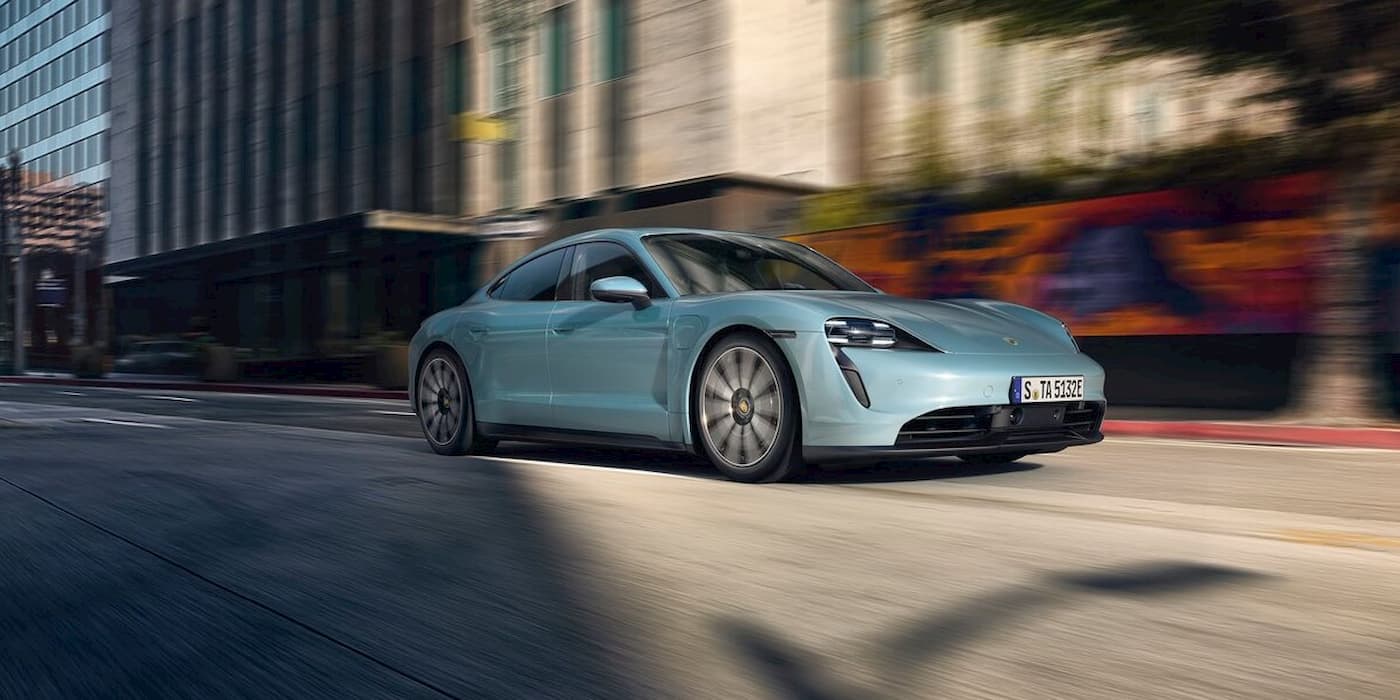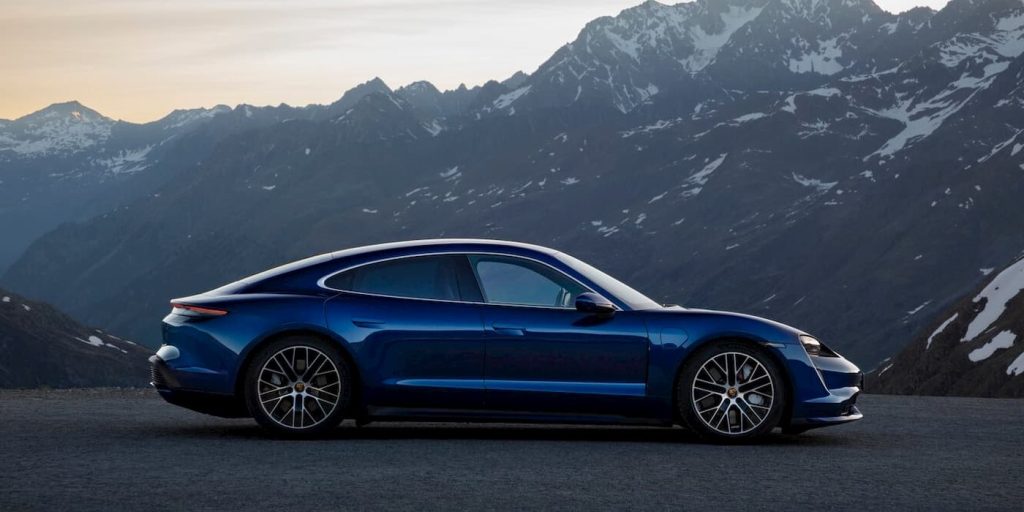Porsche Taycan EV sales fall in the first half of the year


Although Porsche posted gains in every sales region during the first half of the year, the company’s report had a glaring hole in it. Sales of its sole electric vehicle, the Porsche Taycan, fell 5% year-over-year despite the stronger performance. Should Porsche be worried?
After unveiling the Taycan as its first all-electric vehicle in 2019, the EV quickly became one of Porsche’s top-selling models.
In 2021, the German automaker delivered 41,296 Taycan models globally, more than doubling year-over-year (YOY) and outselling the famed Porsche 911, Panamera, 718 Boxster, and 718 Cayman models.
The hype was short-lived as Taycan deliveries slipped 16% last year to 34,801. Porsche attributed the decline to “supply chain bottlenecks and limited component availability,” both of which affected the electric sports car in particular.
After delivering only 9,151 Taycan models in the first three months of 2023, down 3% from Q1 2022, Porsche again said the falling numbers were due to “disproportionately high” parts unavailability.
Despite the supply chain hurdles in the first quarter, Porsche’s CFO, Lutz Meschke, explained the automaker was in a “very steep ramp-up curve” with its supplier. “Therefore, we expect an increase in the BEV share in the upcoming months,” he added.

Porsche Taycan EV sales continue slipping
So far, Meschke’s prediction doesn’t seem to be the case. Through the first half of the year, Porsche Taycan EV sales are down 5% YOY to 17,991, while 911 deliveries reached over 26K.
Porsche says deliveries of electric sports cars continue to be impacted “by shortfalls in the availability of parts than other models.”

According to information from Automobilwoche, the “parts” Porsche is referring to are primarily semiconductors. The report notes that up to 5,000 of them are installed in Taycan models, more than any other in its lineup.
However, as the report claims, Porsche’s Taycan EV sales problem should be a thing of the past as the shortage eases. Porsche aims to deliver around 40,000 units this year, which would represent an increase of over 5,000 more vehicles than in 2022.
City Dwellers’s Take
With its second electric vehicle not due out until next year, the Porsche Macan EV, the automaker will need to figure out the supply chain issues or risk falling further behind as the industry moves to an all-electric future.
Porsche has already delayed the electric Macan by over a year due to the slow development of its software platform. The electric SUV is set to ride on the new PPE premium electric platform being co-developed with Audi.
Meanwhile, other luxury automakers seem to be ramping up EV production just fine. For example, Mercedes-Benz’s EV sales climbed 123% globally to 56,3000 in the second quarter. BMW also saw electric car sales more than double (+117.5%) to 88,289.
The trend will be something to watch closely as we go through the second half of the year.
FTC: We use income earning auto affiliate links. More.
